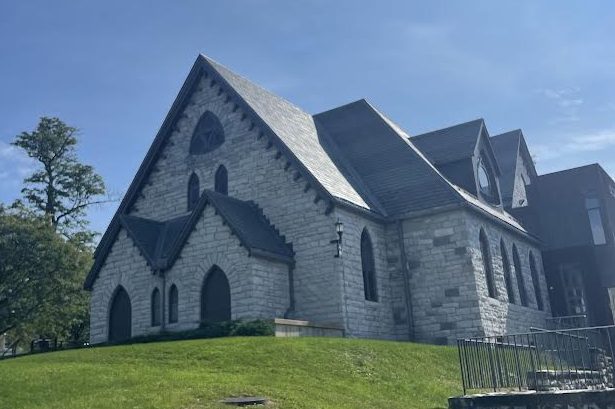Goodrich Coffee Bar now receives $6 in revenue from the College for each meal swipe used there — an increase from the $5 it had collected per swipe since 2012. The increase in the value of each meal swipe will boost Goodrich’s total revenue by around 15 percent. Students will also enjoy greater purchasing power when using a swipe, with the ability to buy up to $6 worth of menu items.
The meal swipe revenue will increase further to $6.50 per swipe for the 2024-2025 academic year and $7.00 for the 2025-2026 academic year.
The cost of labor — which accounts for roughly half of Goodrich’s expenses, according to Goodrich Finance Manager Erin Youn ’24 — has roughly doubled in the years since 2012, as Massachusetts has gradually raised its minimum wage from $8 to $15.
Former Goodrich Finance Manager Ana Wever ’24 told the Record that seeking an increase in meal swipe revenue had been on her agenda since the beginning of her tenure in fall 2021. The process of writing a budget proposal began in earnest fall 2022 because Goodrich management prioritized restoring operations in the wake of the COVID-19 pandemic for the 2021-2022 academic year.
“Throughout the spring and summer of [2022], we worked closely with the Goodrich management team to ensure that we had a proper proposal with the proper analysis to put forth a budget request increase,” Director of Dining Services Temesgen Araya told the Record.
Wever also worked with Jill St. John, the assistant director of finance and strategy for Dining Services, to calculate how much Goodrich’s swipe value should increase between fiscal year 2024 and fiscal year 2026, based on labor costs and expected inflation.
This analysis culminated in a proposal to increase the swipe value gradually, which the Board of Trustees approved in spring 2023, Wever said.
Since 2012, the coffee bar has received $5 in revenue each time a student uses a meal swipe, which can purchase the “Goodrich combo,” consisting of a drink and a bagel with a spread. In the years since, inflation has increased the cost of labor and raw materials, straining the coffee bar’s budget. According to the Bureau of Labor Statistics, $5 has lost 25 percent of its buying power since 2012.
One consequence of the additional revenue from meal swipes is that Goodrich will now have a financial cushion, which it lacked during and immediately after the pandemic. “This will allow us to maintain a small profit margin and grow the business while also remaining stable during the rather challenging economic times we are seeing nationwide,” Wever said.
Part of this profit will go into a rainy-day fund. “We always want to make sure that we have enough cash in the bank to replace all of our equipment if disaster strikes,” she said.
Youn and Wever told the Record that they hope to use the remainder of the additional revenue from meal swipes to purchase better equipment and improve the coffee bar’s offerings.
“This really just gives us more flexibility to really strategize what we can do as a team and bring more offerings to students,” she said. Because of the increase in revenue, two add-ons that used to cost students an extra surcharge are now included in the meal swipe combo, Youn said.
It is now free for students to add half an avocado, instead of a spread, to their bagel when using the meal swipe combo. Avocados, which have returned to Goodrich after a hiatus due to supply chain difficulties, previously cost an additional $1.50. Similarly, when using the combo, students can now add a syrup to their drink, which previously cost $0.50 in addition to a meal swipe. Youn said these changes were efforts to “provide a more complete meal” for students and indicated that further improvements are under development.
Youn said that the business’s ethos has remained student-centered, rather than profit-motivated. “It’s really like, ‘How much can we provide for students? How much can we bring to the Williams community?’” she said.









